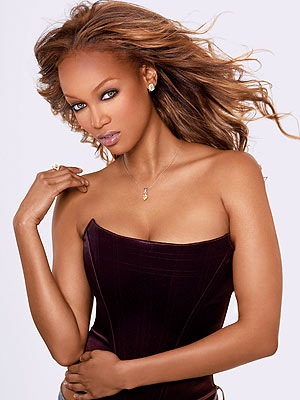
5,132 performances. How do you measure the life of a show?
Today is a sad day on Broadway. After 12 years,
Rent closes -- leaving behind a greatly changed Broadway community from the one it joined in 1996. It is a closing driven by economics (like the rest of Broadway) -- simply put, the people just weren't coming to see the show anymore. (Interestingly enough, though, once the closing was announced, people came in droves -- enough to force producers to push the closing back several months to accomodate the newfound demand.
Rent closes with shows sold out to 100% capacity -- a much more fitting end than most shows get when they close)
When
Rent opened, Broadway was in crisis. After a decade full of bombastic "event" musicals like
Phantom of the Opera and
Les Miserables, the musical seemed to be a fading genre. In the years leading up to
Rent's arrival, few shows made much of a splash. Even the "kings" of Broadway -- Andrew Lloyd Webber and Stephen Sondheim -- were fading. Even though both won Tonys for Best Musical in the pre-
Rent years (for
Sunset Boulevard and
Passion respectively), neither show had the impact on audiences as earlier work and did not enjoy the spectacular success of those landmark earlier works. The demand for bombastic spectacles was being fed by Disney's arrival on the Great White Way with
Beauty and the Beast. The shows that made the most noise tended to be either big, splashy revivals or straight shows -- this was the time of
Angels in America and when great modern playwrights like Wendy Wasserstein and Terrence McNally were seemingly at the top of their game. To just get a feel for the environment into which
Rent walked, the same year that
Rent opened, the other big original musicals that year were
Bring in Da' Noise, Bring in Da' Funk (which owed about 99% of its success to the brilliance of Savion Glover),
Big: The Musical, and
Victor/Victoria. Not exactly shows that have become a huge part of the musical canon. Two of the musicals that
Rent beat out for Best Musical at the Tonys (
Chronicle of a Death Foretold and Swinging on a
Star) are shows I honestly have absolutely no recollection of ever even existing -- and I'm a theatre nerd!
So what made
Rent so special? A couple things. Like
Hair nearly 20 years before,
Rent was an attempt to bring youth culture to the theatre. It brought in "non-traditional" music styles to the form, fusing rock and salsa and pop into the genre. The argument could be made that
Rent was even more successful in attempting that fusion than
Hair before it in that it delved even deeper into the rawness of rock music than
Hair did.
Rent's legacy can be found on Broadway today. Would shows like
Spring Awakening or
In the Heights or
Passing Strange have even had a chance of playing on Broadway had
Rent not paved the way? Although those shows have not enjoyed the same sort of rabid devotion, they do owe a creative debt to
Rent.
Besides mining the music of young people to tell its story,
Rent also actually told a story about young people; the disenfranchised young artists who populate the story were characters never seen on Broadway in quite this vivid detail. There were lesbians and drag queens (and not those homey, delightful drag queens like in
La Cage) and crack whores. These were flawed people and yet people with whom we could sympathize and maybe even identify -- even if we'd never shared their specific experiences.
Rent introduced the world to spectacular young talent. The cast was full of then-virtual unknowns. In fact, the most recognizable face in the cast when it opened was Anthony Rapp, who appeared as one of the nerdy kids in
Dazed and Confused. When it opened, we didn't know who Taye Diggs and Jesse L. Martin and Idina Menzel were. Now, it seems almost impossible to believe that a cast could be filled with all those powerhouses. Back then, they were just struggling actors who lucked into a show that would launch them into the stratosphere. (When I listen to my
Rent cast album now, it's almost hard to believe how little Idina Menzel's Maureen sings in the show. I mean -- it's IDINA MENZEL. How could she not basically sing lead in every single song? And yet she's a relatively secondary character -- probably the last time something like that could be said of her.)
Of course, the cynic could argue that
Rent owes its success to one thing and one thing only -- the death of Jonathan Larson. It's true that
Rent did arrive on Broadway with a backstory that could have been its own musical -- a young man who struggles to get his show produced only to drop dead tragically the night of the final dress rehearsal, just hours short of truly seeing his dream come true. There's probably no denying that a significant percentage of those people who went to see
Rent in those early days were drawn by morbid curiosity. Morbid curiosity, though, only goes so far. Morbid curiosity doesn't buy you 12 years and over 5000 performances.
Rent has become more than Jonathan Larson's tragic dream come true and deserves more than just being the success built on death.
Rent may not have "saved" Broadway from bombast and spectacle. Disney still has its hooks in, after all, and originality still suffers in the face of jukebox musicals and the incessant adaptations from films. But
Rent gives hope that that spark of originality can still find an audience and ignite a phenomenon. Someday, another show will come sneaking along that will show us what a musical can be, that will challenge us and show us something we've never seen before. And chances are pretty good that it won't be produced by Disney or have a score provided by the music of Britney Spears.
 Today as I was driving to work, a shocking realization struck me. It's fall! I reached this startling conclusion as I noticed the trees that line my favorite part of the drive (this tree-lined hill) were no longer green but turning orange and red.
Today as I was driving to work, a shocking realization struck me. It's fall! I reached this startling conclusion as I noticed the trees that line my favorite part of the drive (this tree-lined hill) were no longer green but turning orange and red.

























